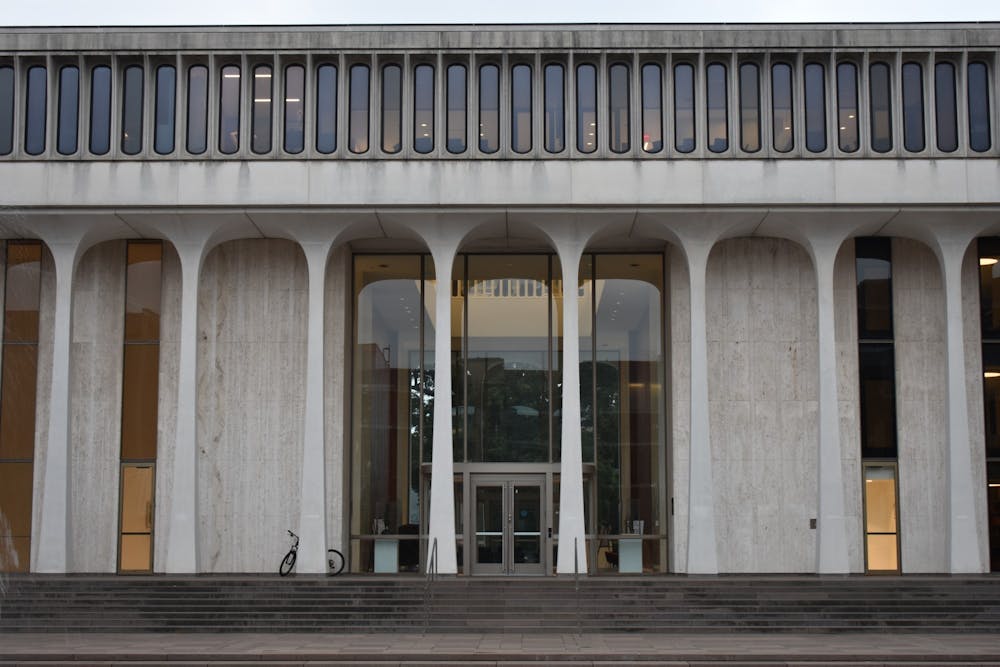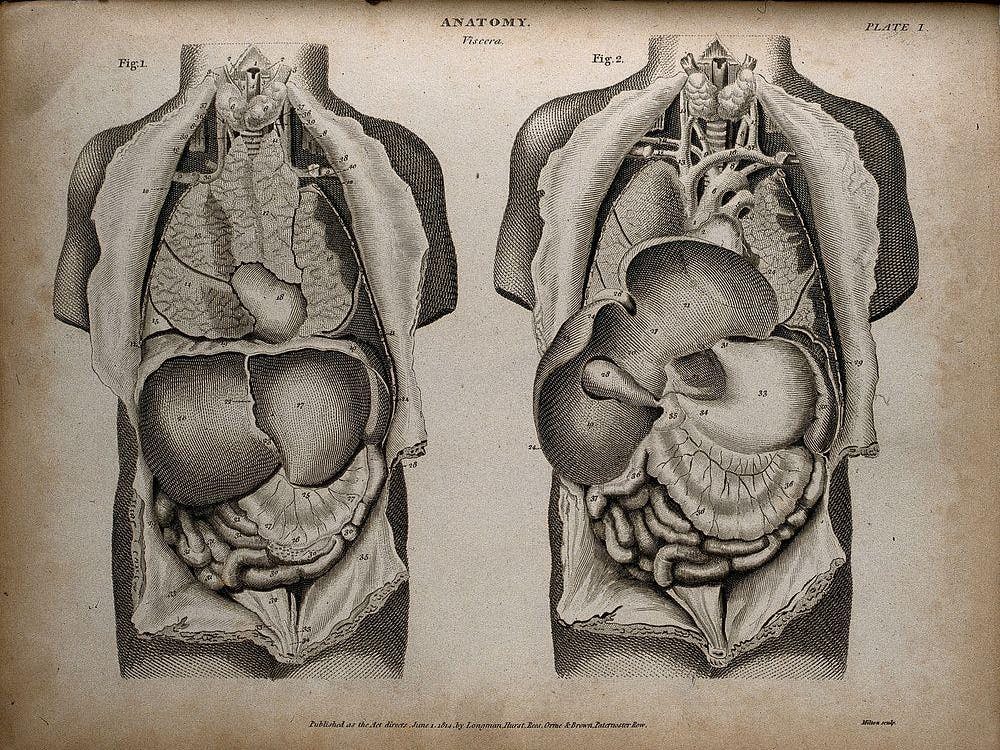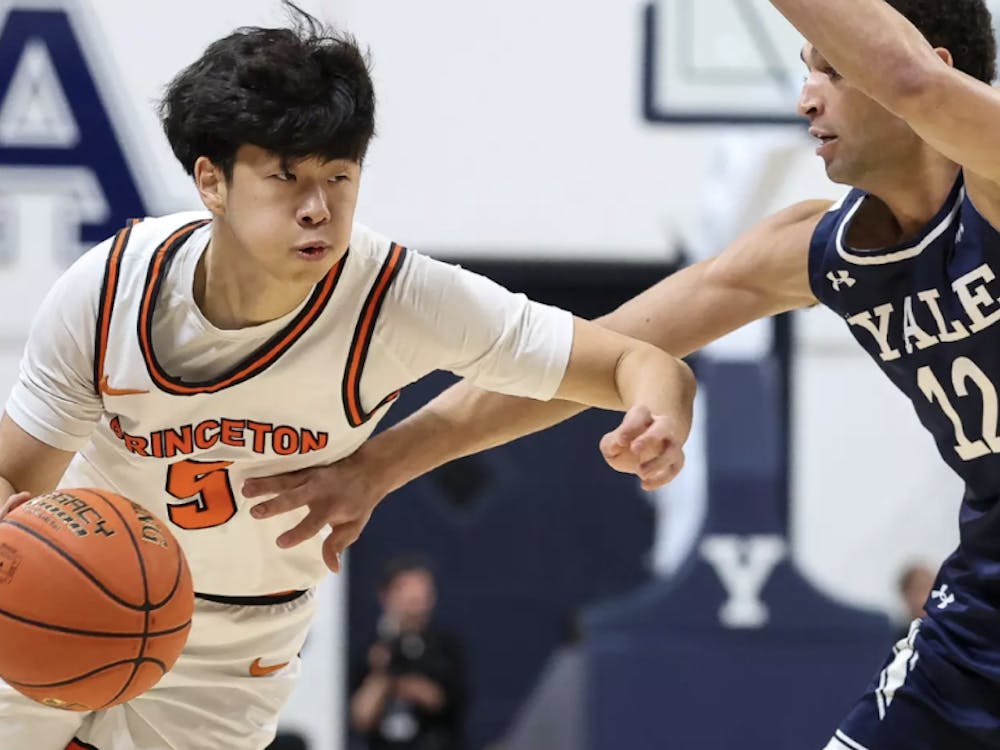As the inaugural year of the Princeton’s Policy Advocacy Clinic Seminar concludes, faculty and students who participated reflect on the program with praise. They shared standout experiences from watching legislative hearings to running a power mapping session with some of New Jersey’s top civil rights organizations.
Through the program, an alternative to the traditional Policy Task Force which is one part of SPIA junior independent work students work with external partners including “lawmakers or advocates” to advance a public policy issue. This alternative comes as SPIA tries to increase practical applications that might drive graduates in policy fields. The SPIA 2022 Annual Report notes that only seven percent of graduates planned to work in the public sector.
Professor Udi Ofer, the John L. Weinberg Visiting Professor and Lecturer in the School of Public and International Affairs (SPIA) organized the opportunity for students. Ofer was the Deputy National Political Director and Director of the Justice Division of the American Civil Liberties Union (ACLU) until September 2022. After teaching a Policy Task Force for the past four years at SPIA, he recognized students’ excitement and demand for doing more than writing about policy issues.
Three Policy Task Forces from the spring semester of 2023 focused on international issues and two focused on domestic issues, with one covering both areas.
Sharing a similar vision as Associate Dean Paul Lipton and Dean Amaney Jamal in SPIA, the clinic was established to promote experiential learning in SPIA and prepare students for careers in public service.
In an email to The Daily Princetonian, Ofer wrote, “The most immediate goal of the Princeton Policy Advocacy Clinic is to immerse students in a real-world policy making experience.” His ultimate goal was “to bring my experience working for 20 years on public policy issues related to civil rights and civil liberties into the classroom and prepare the next generation of leaders.”

In the fall semester, students learn about the policy making process in weekly seminar classes. Then, the students implement their knowledge during the spring semester by working in the field with outside partners such as lawmakers or advocates. Students visited the Capitol multiple times this semester, working directly with congressional staff.
The course, listed as SPI 490: Policy Advocacy Clinic Seminar, is by application only and limited to 10 students, all of whom must be SPIA concentrators. Students who complete this course continue into the clinical program in the spring which satisfies the task force independent work requirement and the field requirement for junior concentrators in SPIA.
While the clinic is modeled after legal clinics common in law school, Ofer wrote to the ‘Prince,’ “Princeton Policy Advocacy Clinic is unique both because it is for undergraduate students but also because of the range of skills-building it focuses on.” Students learn “everything from studying the legislative process and administrative law to learning how to draft a campaign plan and a policy analysis memo.”
In an interview with Anna-Maria Chedia ’24, a current student in the program, she spoke about working directly with the New Jersey ACLU. Chedia described her excitement working with advocates in the field such as the Innocence Project and Black Lives Matter Paterson.

Ava Milberg ’24, another student in the program, compared the program to the traditional Policy Task Force required as a part of the junior independent work in SPIA. Milberg said, “I think it feels different for us to be directly working with an organization or a politician and producing a product that they've requested.”
Milberg is a senior columnist for the ‘Prince.’
However, there are improvements that Milberg suggested for the second year of the program.
She noted that one difficulty in the field work is “lining up the academic calendar with outside organizations’ calendars.” Ofer also commented, “So much of my time is spent finding the right project that is peaking at the right moment for the students to be able to actively participate in.”
Chedia also commented that bringing in professors from other fields would enhance the clinic experience.
Both Chedia and Milberg recommend the program for current and prospective SPIA students and hope the program will expand in the future.
“I think this clinic is worth declaring SPIA for,” Chedia said, “There’s no other [program] for undergraduates in the country. [...] I wish every SPIA person got to take this.”
Milberg similarly commented, “I’m thinking back to my freshman self — I might have been really excited to hear that. There’s definitely nothing like it in other departments.”
Ofer recommends the program for anyone who “wants to make the world a better place.” He wrote, “Policymaking is really hard. Being an advocate is really hard. [...] In the Princeton Policy Advocacy Clinic, I hope to help inspire [the] next generation of movement leaders and policy leaders who will make our world a better place for all.”
The success of the program thus far means that the Advocacy Clinic will continue to run during the 2023-2024 school year. Currently, eleven juniors are enrolled in this year’s Policy Advocacy Clinic Seminar. For the 2023-2024 academic year, all ten spots have been filled after receiving 34 applications.
Correction: A previous version of this story listed that nine spots in next year’s class had been filled. In fact, all ten have.
Jackie Zhou is a staff News writer for the ‘Prince.’
Please send any corrections to corrections[at]dailyprincetonian.com.








